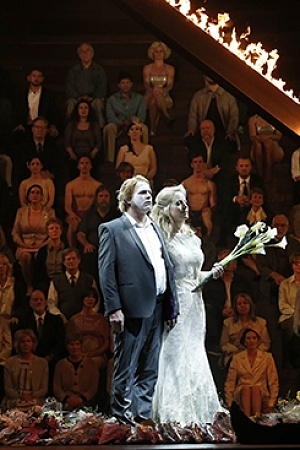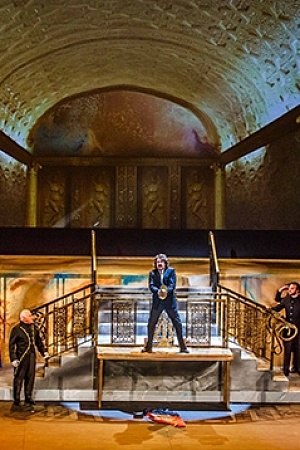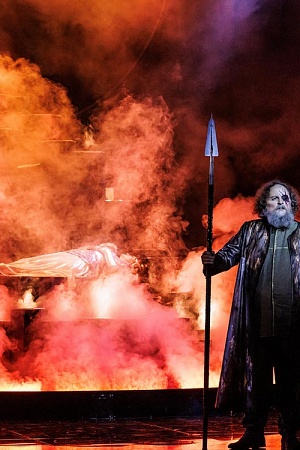Karl V (Bayerische Staatsoper) ★★★★
The corpulent form of Henry VIII understandably dominates our own historical imagining of the turbulent first half of the sixteenth century. From the perspective of continental Europe, however, other rulers loom just as large; from there even the English Reformation seems to have another monarch at its epicentre.
That monarch, Charles V (1500–58), was the inheritor of both the Habsburg and Spanish kingdoms and was also elected Holy Roman Emperor, thus becoming the titular ruler of all Christendom. A combination of military prowess and dynastic manoeuvring, alongside the ongoing conquest of the New World by his Spanish subjects, saw Charles rule over the first Empire about which it was said that ‘the sun never set’. Ultimately, however, the triumph of Protestantism and the nationalist ambition of his German princes, as well as the relentless military pressure he faced from both a recalcitrant French Kingdom and the Ottoman Empire, wore him down. Over the last two years of his life, he abdicated his various royal and imperial titles and lived out the remainder of his life at the Monastery of San Geronimo de Yuste in Spain. (Charles looms as a ghostly apparition in Verdi’s 1867 opera, Don Carlos.)
Continue reading for only $10 per month. Subscribe and gain full access to Australian Book Review. Already a subscriber? Sign in. If you need assistance, feel free to contact us.











Leave a comment
If you are an ABR subscriber, you will need to sign in to post a comment.
If you have forgotten your sign in details, or if you receive an error message when trying to submit your comment, please email your comment (and the name of the article to which it relates) to ABR Comments. We will review your comment and, subject to approval, we will post it under your name.
Please note that all comments must be approved by ABR and comply with our Terms & Conditions.